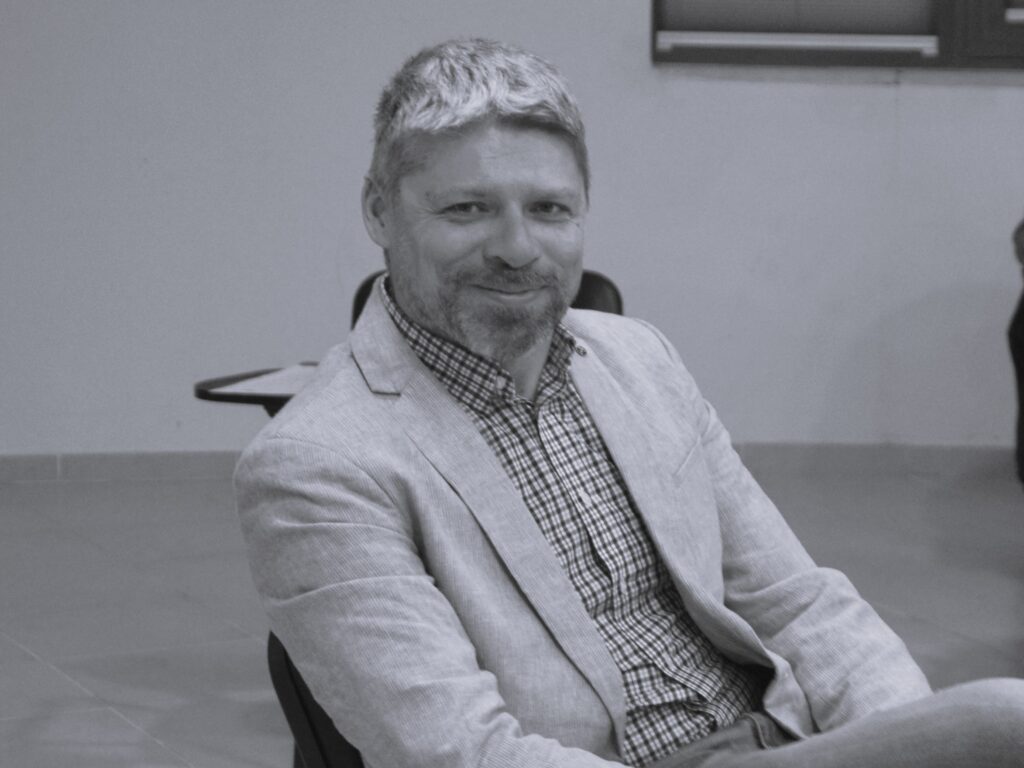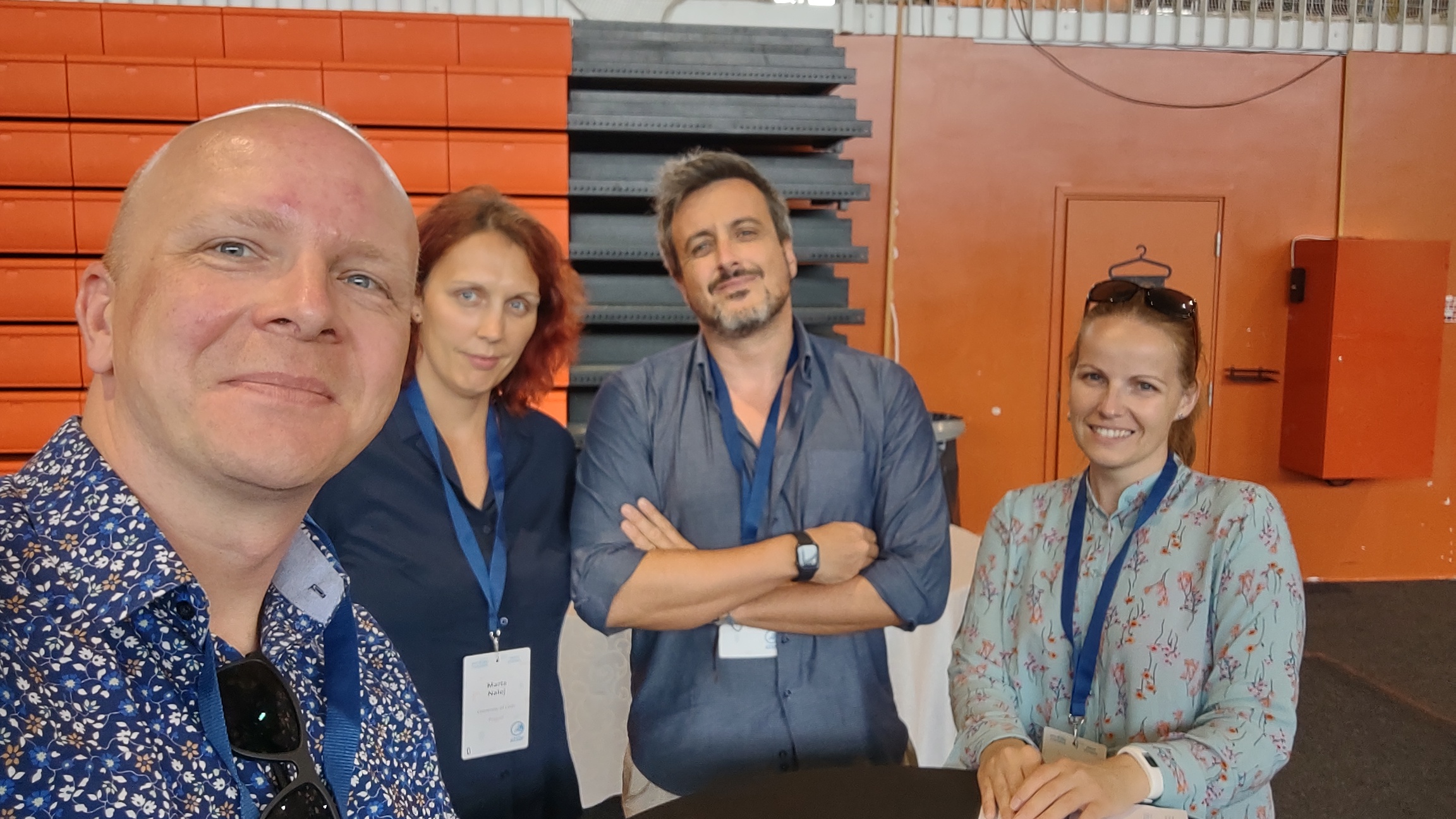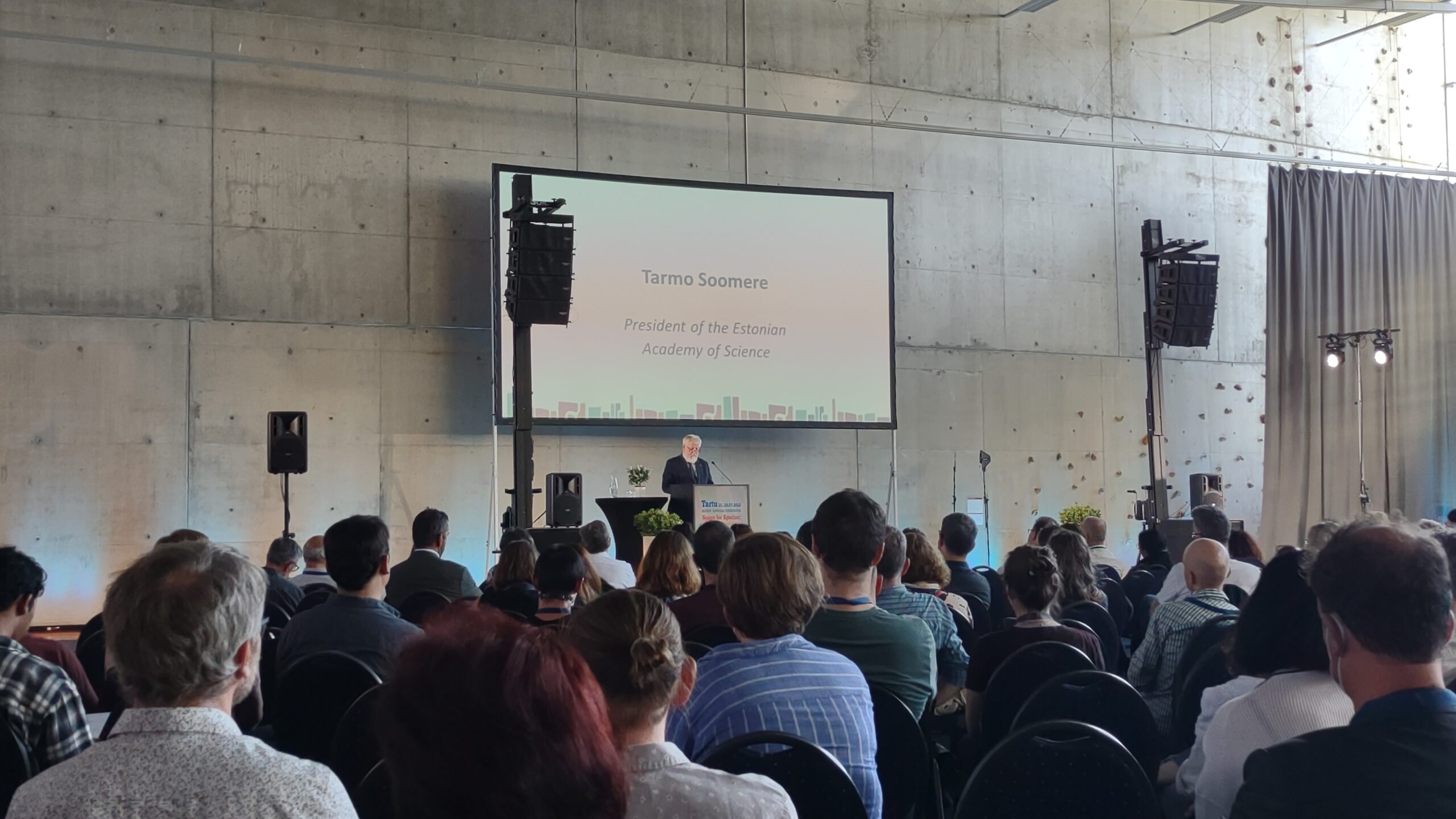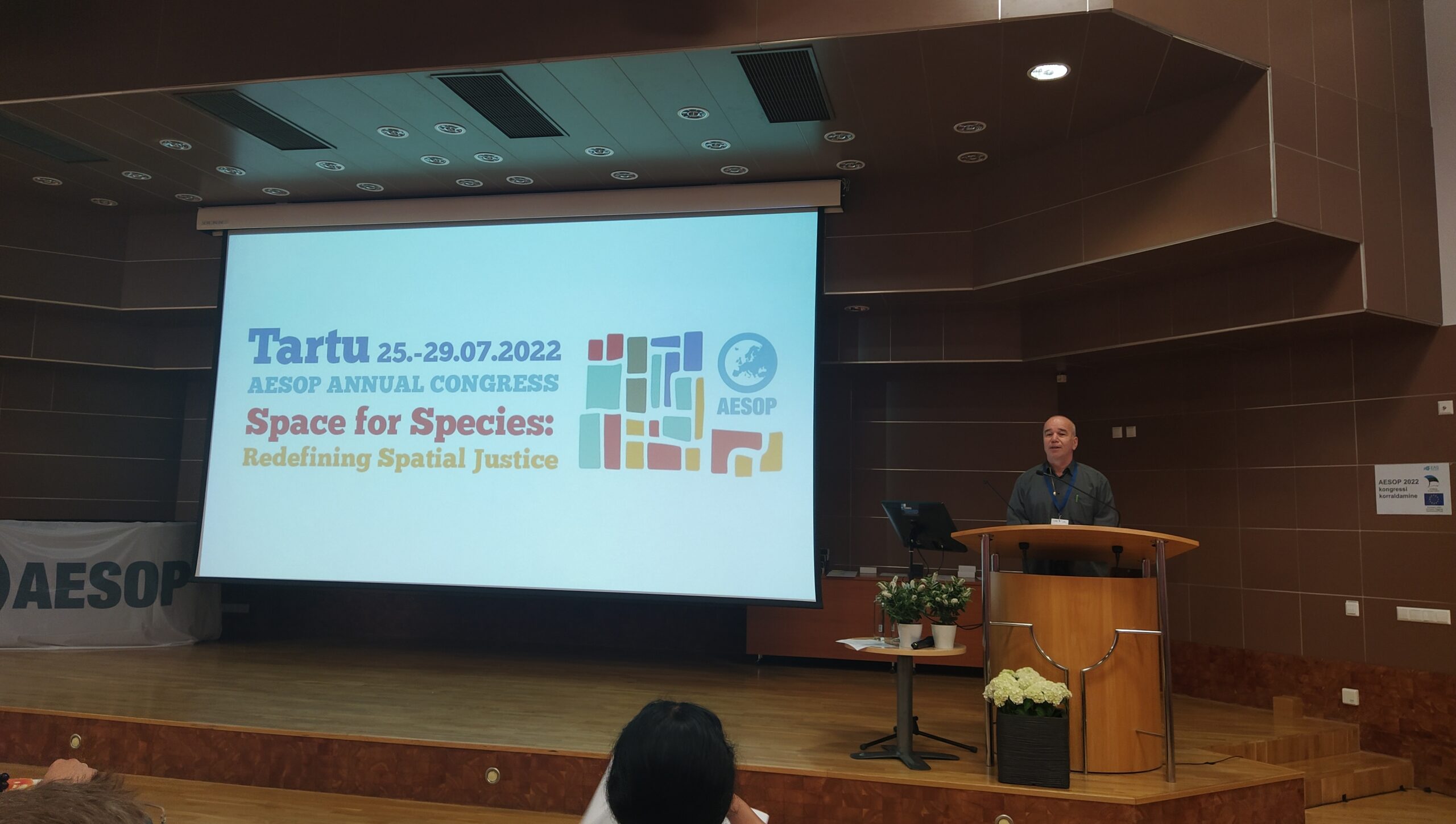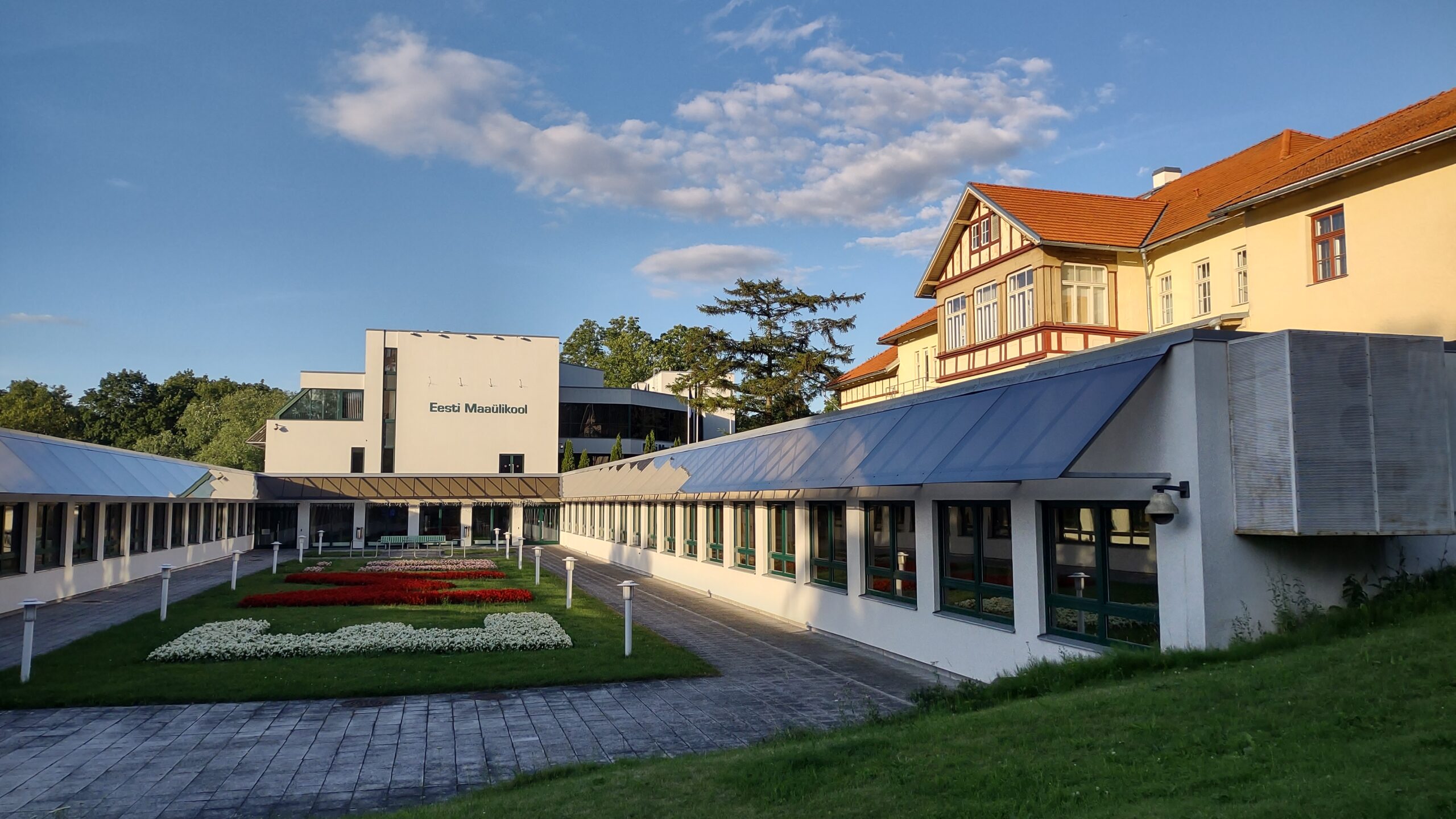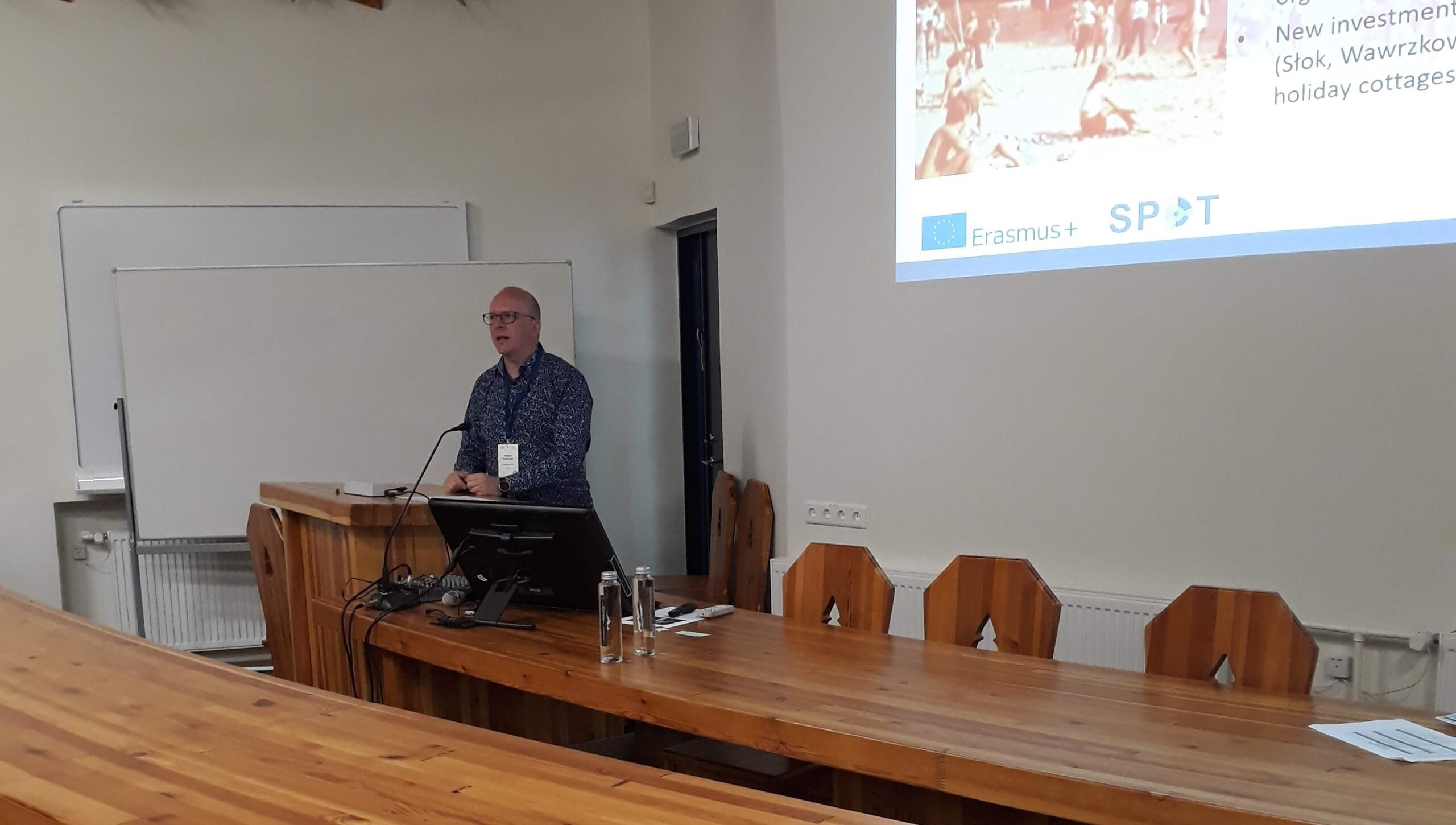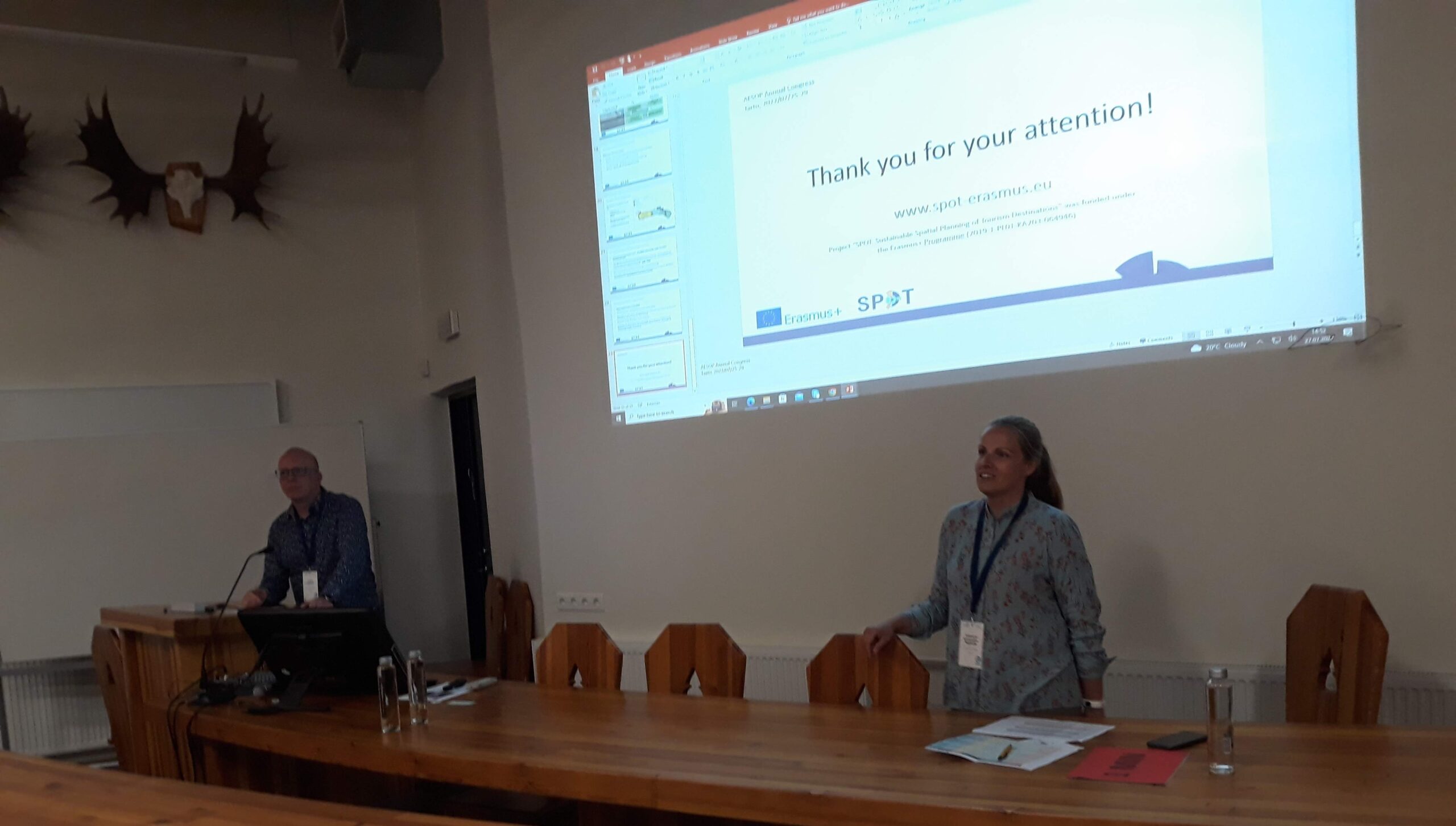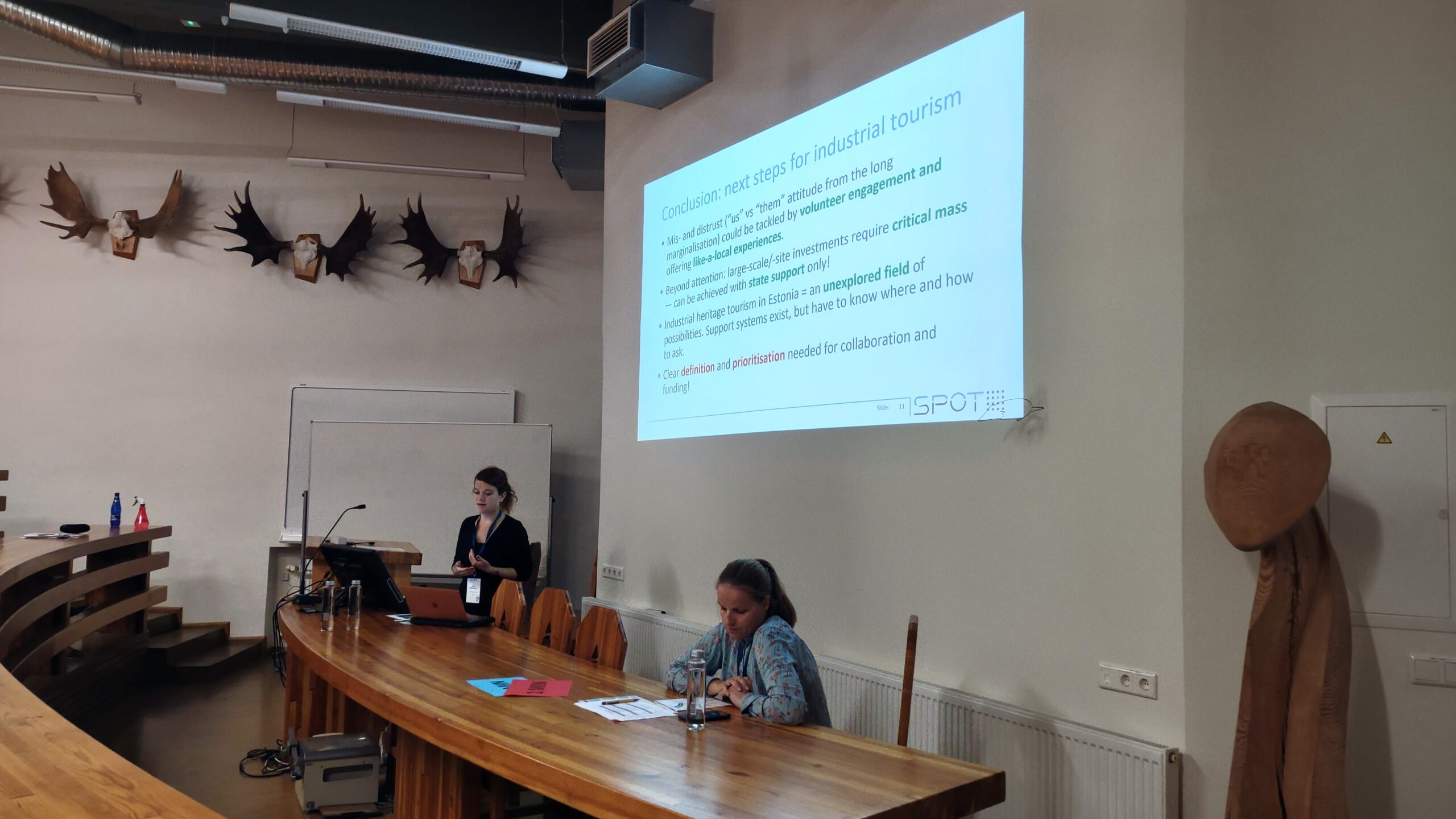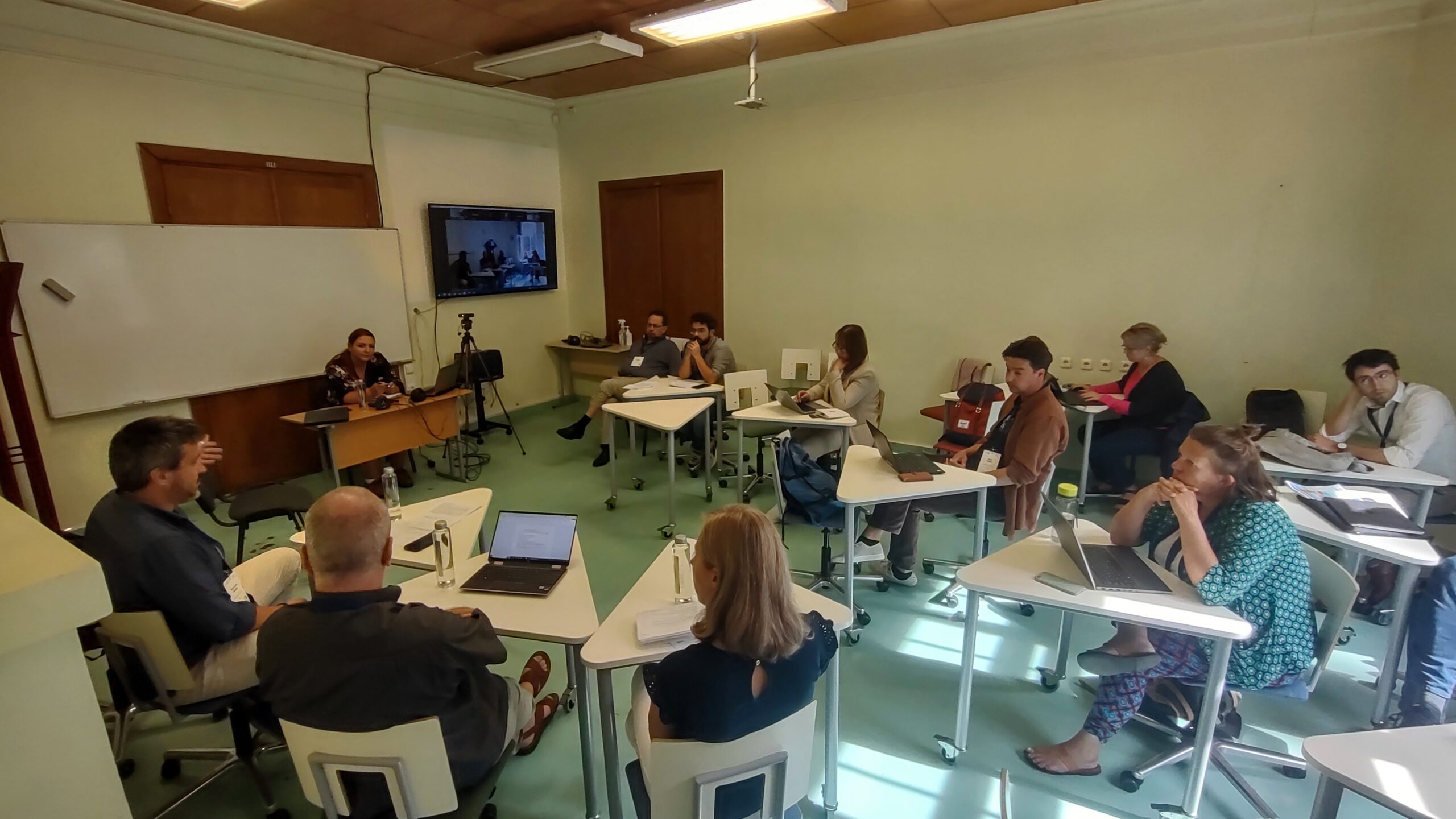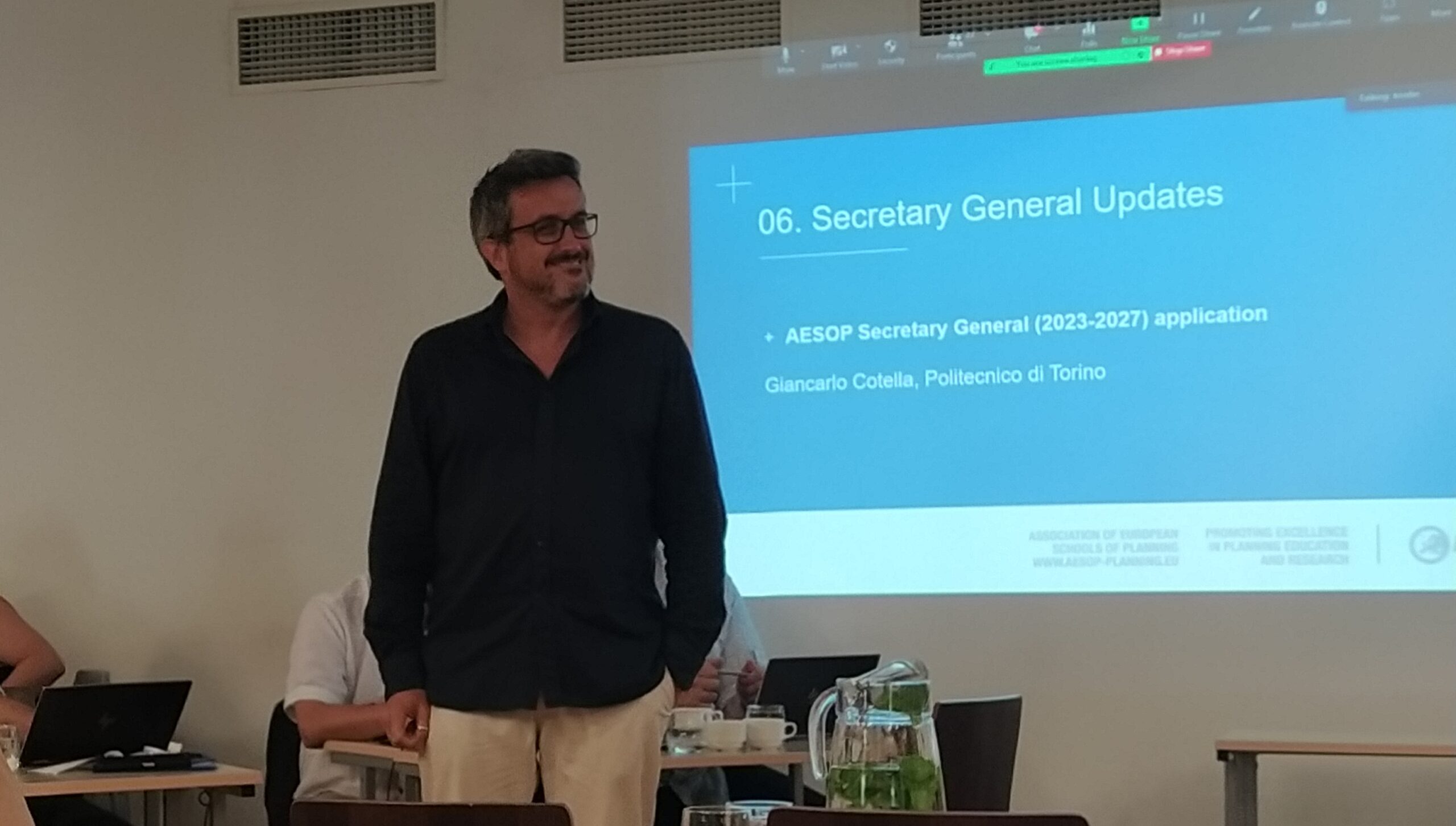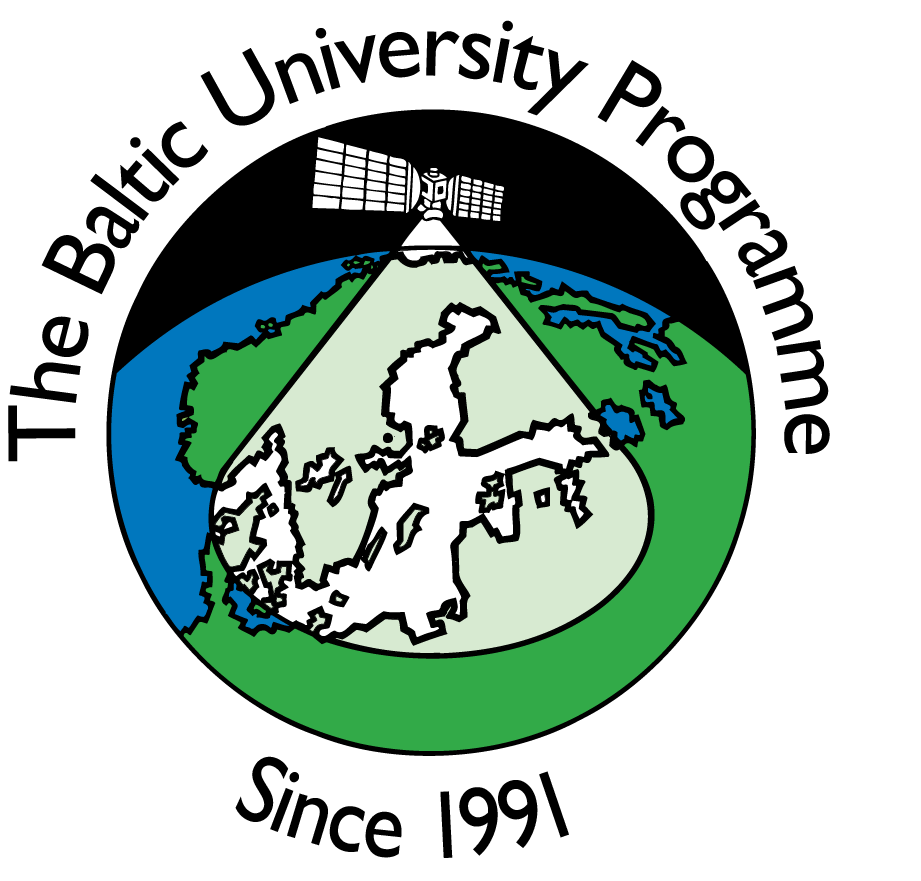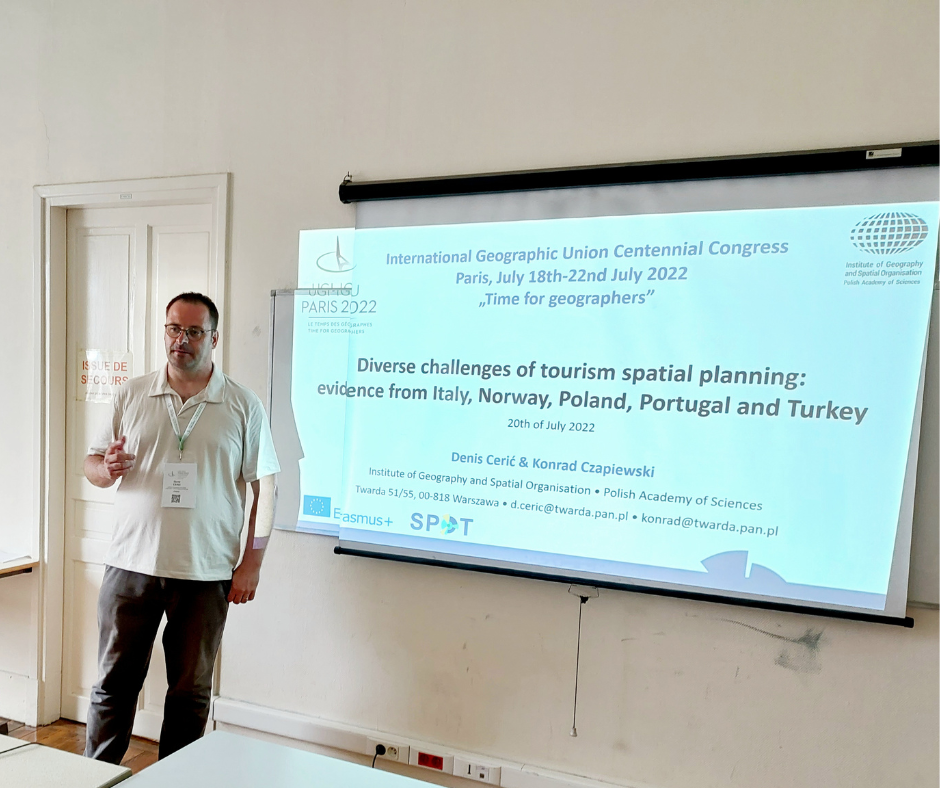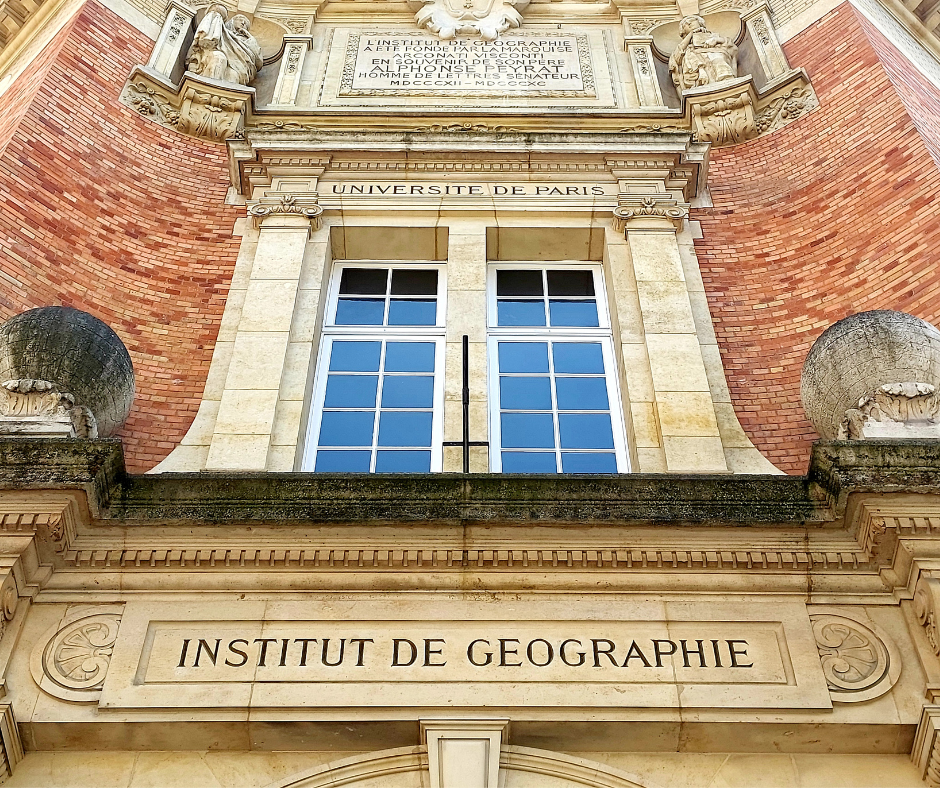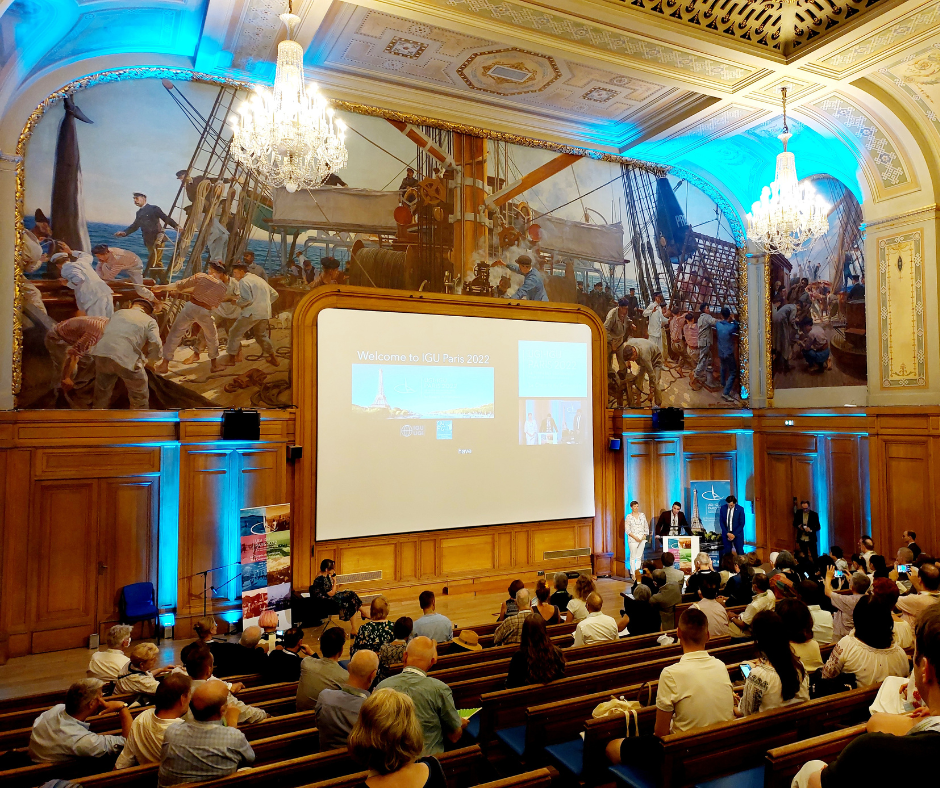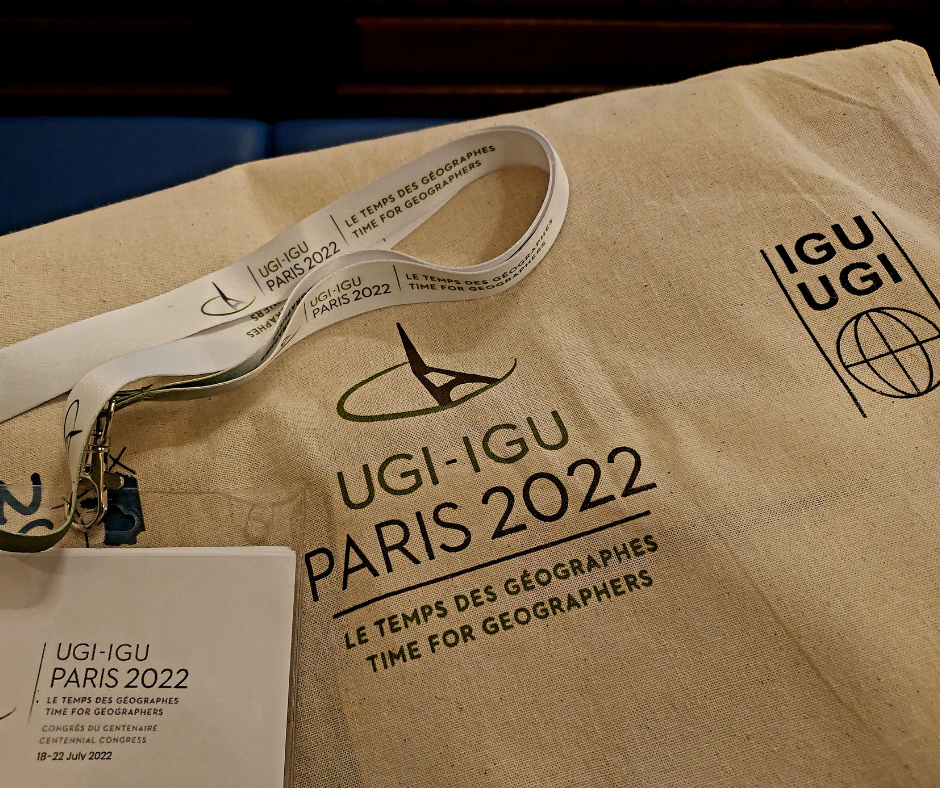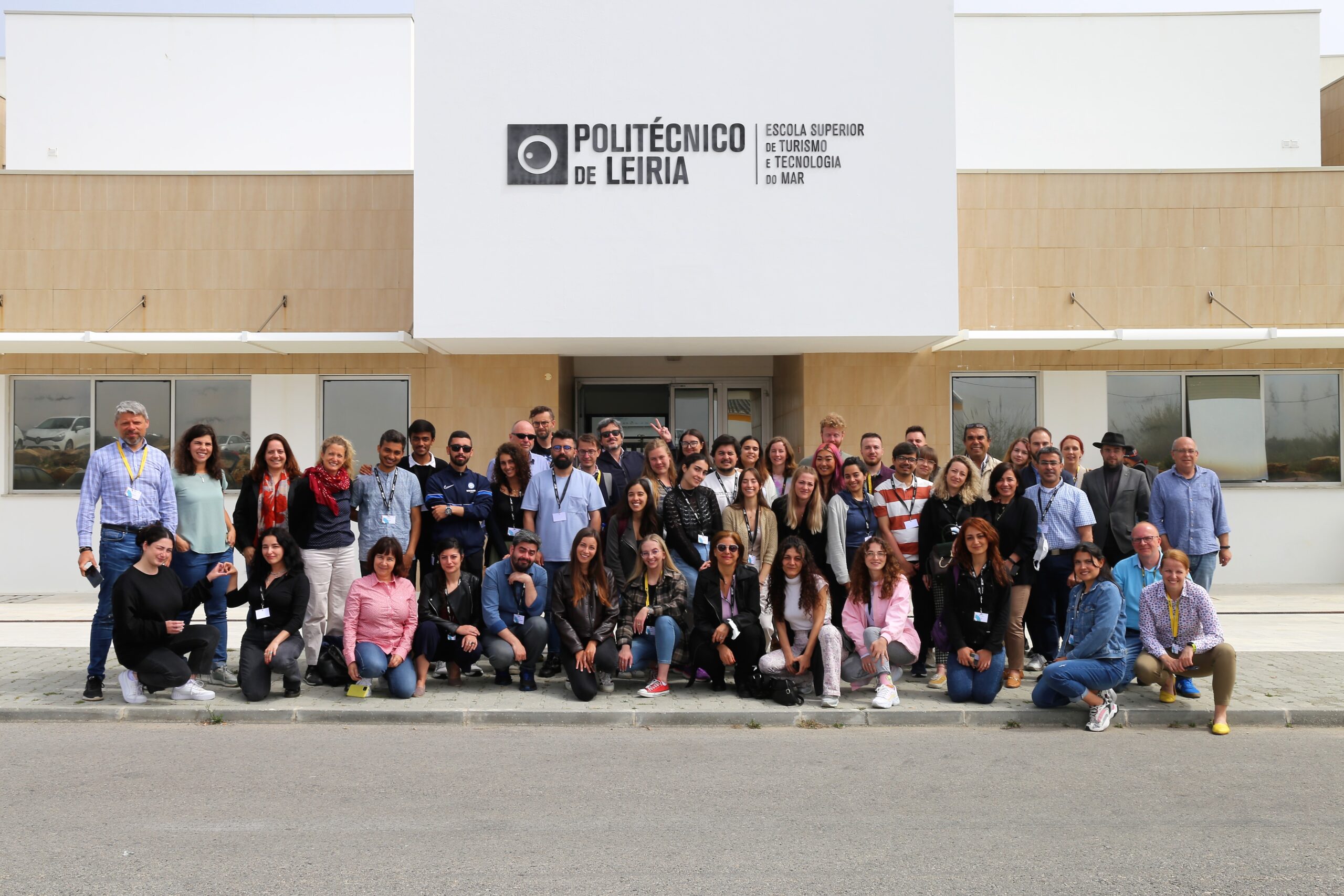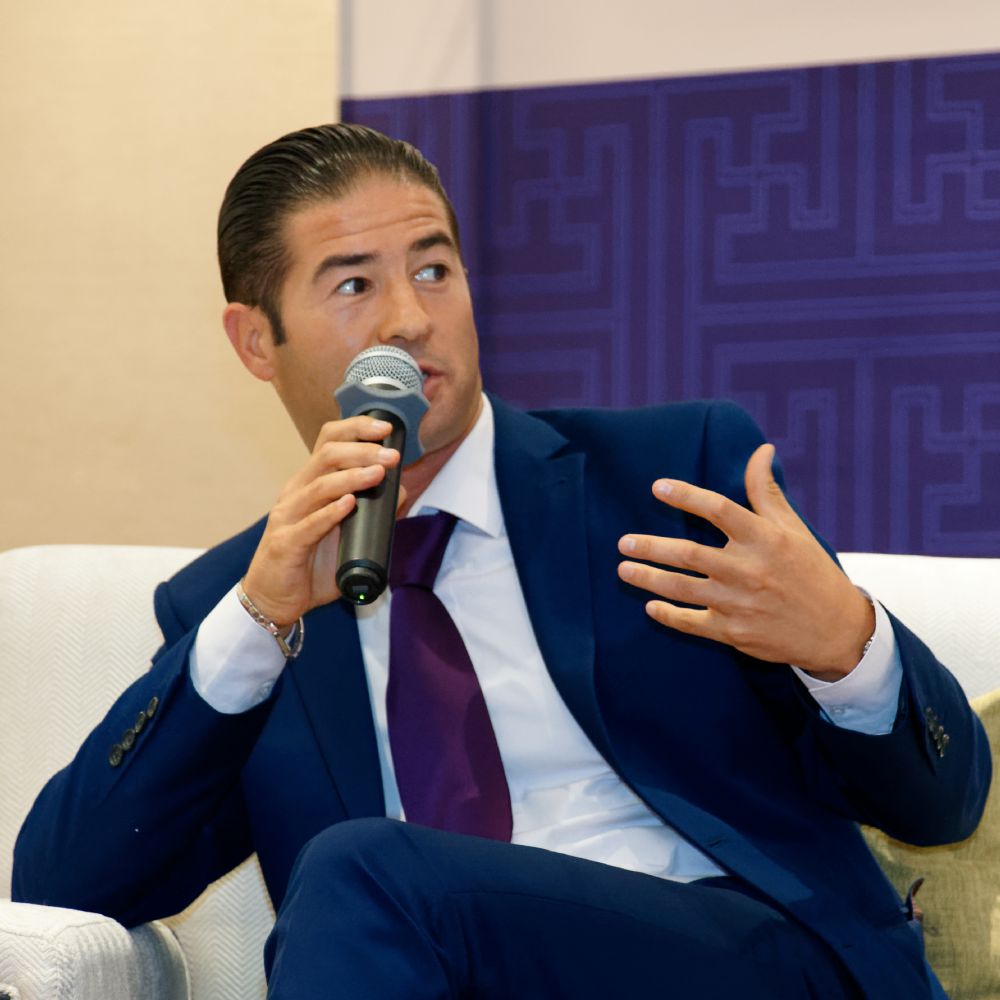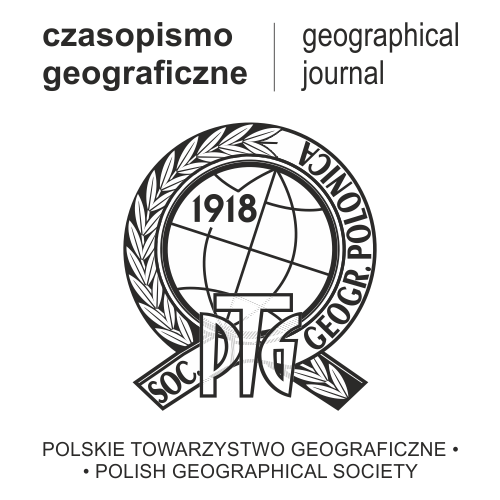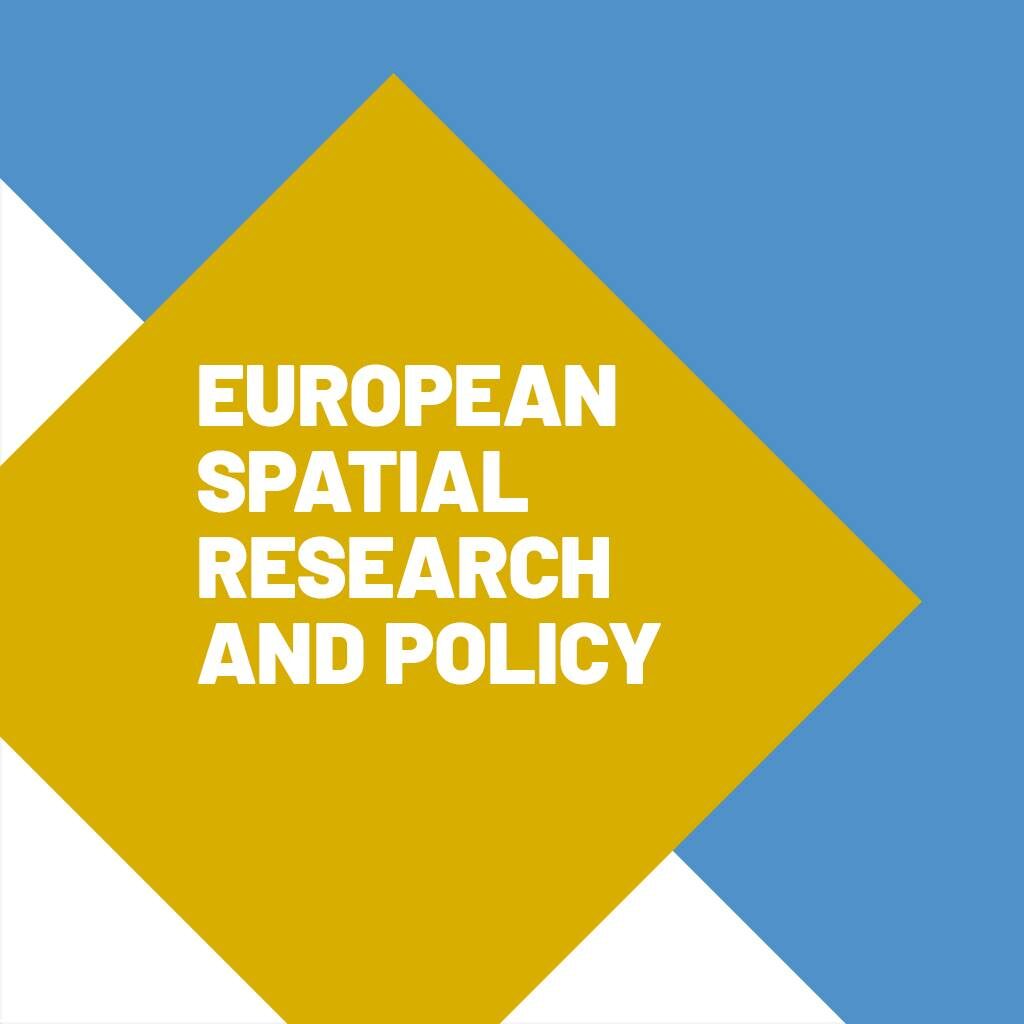Project SPOT actively contributes to the Annual AESOP Congress 2022 ‘Space for Species: Redefining Spatial Justice’ in Tartu (Estonia), July 25-29, 2022.
Just green transition – Polish case study of co-evolution of tourism and heavy industries
The SPOT project team had the opportunity to present one of our case studies during the Annual AESOP Congress 2022 in Tartu. The session chaired by Katarzyna Leśniewska-Napierała (University of Lodz, SPOT) was about culture and tourism. During the session, the SPOT project’s researchers from the University of Lodz (Katarzyna Leśniewska-Napierała, Marta Nalej, Tomasz Napierała, and Iwona Pielesiak) delivered the presentation entitled ‘Lignite mining and energy production in Bełchatów industrial region: a threat or opportunity for tourism development?’.
In Bełchatów industrial region, all tourism changes have been and will be related to transformative moments such as the development and then the extinction of the core developmental functions in the region: lignite mining and energy production. Exploration of co-evolution of tourism and both of industrial sectors is the focus of a case study conducted by SPOT project’s researchers from the University of Lodz. Recently, the decision on liquidation of the lignite mine and power plant is a consequence of the EU policy related to reducing the use of coal in the energy sector and switching to renewable energy. The Bełchatów Power Plant is responsible for the largest emissions of carbon dioxide in the entire EU.
The announcement of the closure plan of the power plant and the lignite mine was a necessary step in obtaining funds from the Just Transition Fund. It forced both the regional authorities and the state company that owns the complex to set a schedule to shut down the lignite mine (until 2038) and the power plant (2030-2036). This will result in workplaces losses as the employment in the energy complex in Bełchatów is more than 14,500 people. About 4,500 people work in the mine and about 3,000 in the power plant. Another almost 7,000 people are employed in subsidiaries. These numbers should be confronted with the fact that the case study area is populated by more than 130 thousands of inhabitants for now. Just green transition of the Bełchatów industrial region results in substantial economic, social, and demographic consequences.
The fundamental goal of the transformation should be, on the one hand, to convert the economy to modern and green technologies, especially in the area of energy. As the energy infrastructure is an unquestionably strong side of the Bełchatów region. The economic diversification of the region should also be one of the transformation priorities, but it is necessary to focus on the use of existing potentials. The transformation of the Bełchatów industrial district also requires the recultivation and revitalization of areas degraded by open-cast lignite mining. It is expected that tourism, in particular leisure tourism, might become one of the core functions of the Bełchatów industrial region, and a chance for the regional economy to be impacted by the loss of a significant number of workplaces. The recultivation plan is already partially implemented. The Kamieńska mountain was formed at the external dump of the Bełchatów field. Using that, a 760-metre long ski route was created. In the summer, Kamieńska mountain is available for cyclists and off-road vehicles. In total, the area of 7,886 ha will be recultivated. The main focus of the recultivation will be afforestation. It is also planned to create a water reservoir in part of the present Bełchatów field. The process is expected to last until 2070.
Some inconsistencies of the recultivation plan should be indicated. Neighbouring areas of the Bełchatów excavation field are planned to be used as a municipal waste dump, water reservoir, and recreational centre at the same time. There is also a huge time gap between the moment when the lignite mine and the power plant will be shut down (2030-2038), and the moment when the water reservoir will be created and the area will be ready to launch the recreational centre (2070). Moreover, in the strategy for just green transition of Bełchatów industrial district it is estimated that mass leisure tourism development based on a recreational centre will allow to create 50 new workplaces only. Last but not least, the exclusion of local communities from strategic and spatial planning should be mentioned as well. It resulted in significant inconsistencies between the territorial just transition plan for Bełchatów industrial district on the one hand, and local strategies and master plans on the other. While the supralocal document is focused on the development of mass leisure tourism, local strategies and plans mainly consider the development of second homes. All of this brings us to the most fundamental question of planning reminded by Maroš Finka (Slovak University of Technology, President of AESOP) during the opening ceremony of Annual AESOP Congress 2022: Should we plan for people or with people?
Social and territorial impact of just green transition
The SPOT project team joined the round table of Annual AESOP Congress 2022 led by Kejt Dhrami (Polis University, Co-PLAN Institute for Habitat Development) entitled ‘Fit For Green: Social and Territorial Impact of Just Green Transition’. Giancarlo Cotella (Politecnico di Torino, SPOT) was one of the contributors.
The discussion started with regional similarities and specificities of just green transition. Maroš Finka (Slovak University of Technology, President of AESOP) emphasised that diversity is the main common feature of regions significant from the perspective of green transition. Diversity should be discussed in the context of geographical proximities and dependencies. He noticed that Russian aggression over Ukraine moves Europe ahead, which also refers to the problem of just a green transition. However, any action cannot be successful without the focus on: integration (interdependencies between actions and territories of their implementation), synergies (between all single actions undertaken), and efficiency (as we have limited resources to undertake actions).
Giancarlo Cotella noticed that it is difficult to identify regional specificities of just green transition across Europe. ‘Low-carbon’, ‘post-carbon’ or ‘zero-carbon’? – it is very challenging to discuss EU policies when the goals of those policies are changing so fast. On the other hand, green Europe and just Europe are seen for now as the two main long-term goals of the future Europe. ‘No one left behind…’ is the main construct of social justice – Carlos Tapia (Nordregio) mentioned. Transitions affecting both nature and societies (including their economies) are difficult to engineer, and their outcomes are hard to predict. Giancarlo Cotella emphasised that it is a great progress that the EU does not sweep under the carpet the negative social and economic effects of a green transition.
Thanks to Maroš Finka and Bianca Mitrica (Institute of Geography, Romanian Academy) we had an opportunity to address the issues from the national perspectives of Slovakia and Romania respectively.
Maroš Finka concluded that the EU is at the end of the process of transfers addressing solidarity. Now, we are shifting to the EU focused on transfers addressing local services. We understand that not every region or locality has to be industrial, but every area can contribute in some way to the development of the EU. Rodon Miraj (Open Regional Fund for South East Europe) noticed that in a discourse on just green transition, gender issues are missing, especially that it is well evidenced that women are mostly affected by negative effects of economic transitions. Ledio Allkja (Co-PLAN) concluded that the biggest question is how we can go from the neoliberal economic-centric approach to more just and green. There is also a big question about the winners and losers of just green transition.
Giancarlo Cotella chosen as the new Secretary General of AESOP
Last but not least, we are pleased to inform you that Giancarlo Cotella (leader of the Politecnico di Torino team in a project SPOT) has been chosen as the Secretary General of AESOP. Giancarlo Cotella has over 15 years of international research experience on the comparative analysis of territorial governance and spatial planning systems in Europe and beyond with particular reference to the impact of EU policies on domestic contexts. His work focused extensively on the potentials for transferability of good practices and policy recommendations within the European space. Congratulations!
